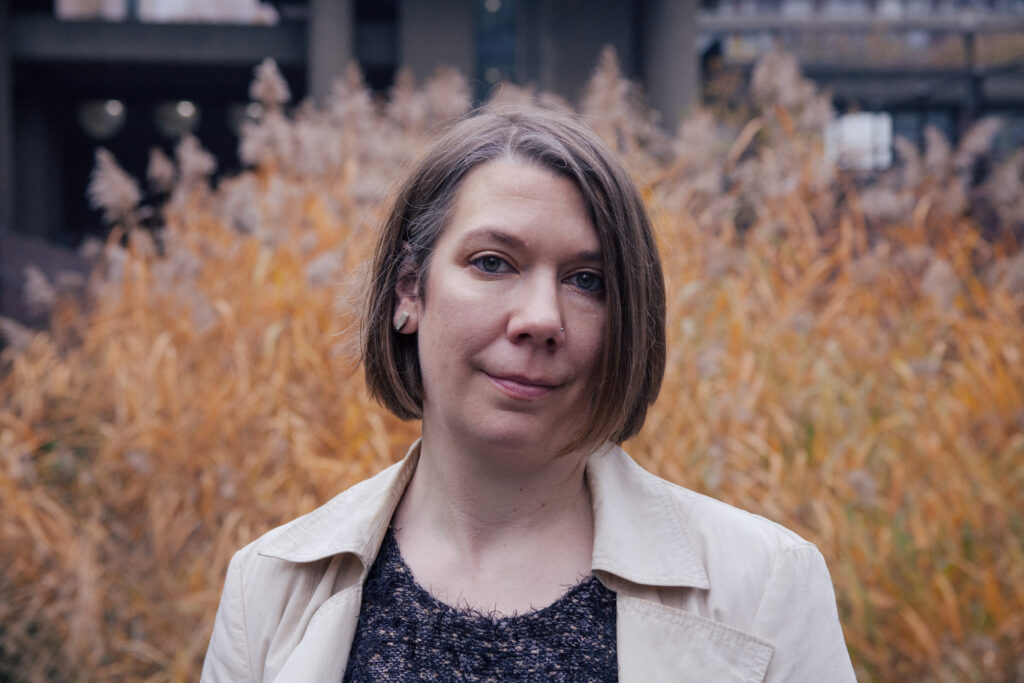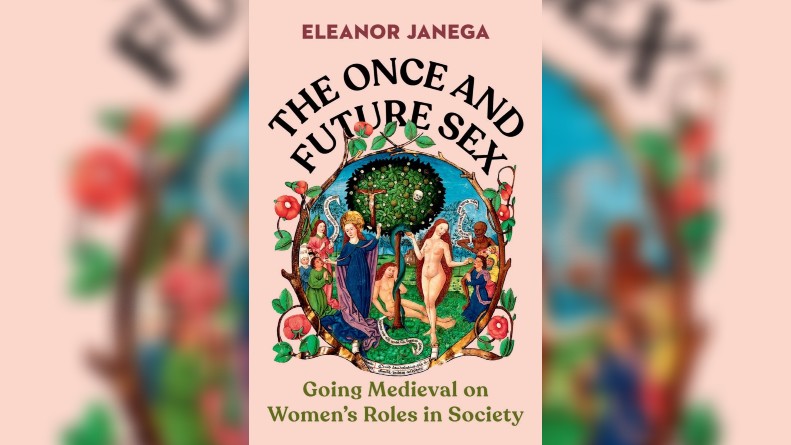Medieval historian, Eleanor Janega, talks about her new book and the role of women in society from the Middle Ages to present day

• Congratulations on the publication of your new book The Once and Future Sex: Going Medieval on Women’s Roles in Society. Why did you decide to write this book?
I think that we are currently at a particularly reactionary point in terms of politics, where a lot of people’s rights are being eroded, and women, and their bodily autonomy, are a big part of that. I have noticed a lot of shock at this turn of events, and as a part of it rather a lot of surprise that women’s liberation isn’t a steady trend towards more and more freedom. As a medieval historian this isn’t particularly shocking to me, however. Not because I am inured to the degradation of women because the Middle Ages were so much worse, but because studying history shows that these things are constantly in flux, but with women usually being treated as inferior to men. There were plenty of freedoms that women enjoyed in the medieval period which were subsequently lost in the early modern period, for example. Being aware that these things change all the time can help us to stay on our guard now when we come up against misogyny.
• Can you tell us a bit about the themes you explore in the book and why you decided to focus on them in particular?
The book first looks at the historical and philosophical underpinnings of gender in the middle ages, and then moves on to three thematic chapters: one on the beauty standard, one on sexuality, and one on women and work. It then closes with a discussion of why all of this is important to consider. I chose the three thematic elements because I find that they are often the three places where ideas about women are actually most changed. The ideal medieval beauty looks nothing like what we uphold today. Medieval ideas about sexuality saw women as being understood as rapaciously over-sexed. Finally, medieval women were working everywhere and in all occupations across the period and their participation in any form of labour was expected. When we can see how much we have changed our expectations of women from the medieval period it can help us to understand that our new ideas are similarly contrived and non-sensical. We don’t have to keep making up new reasons to treat women as inferior! We can stop at any point!
• What first interested you in the medieval feminine ideal?
I first started researching ideas about women during my PhD. I was writing about propaganda and the uses of preaching, which to be honest is pretty heavy on guys. However, one of the big things that the preacher I worked on was concerned about was sex work, and that sent me off on an examination of the legalities and discussions around the sex trade at the time. I was so interested in how different attitudes to sex work were that I started looking into more and more of the accepted ideas about women generally. And of course it’s fascinating, because half of the population of the world have always been complex and interesting characters. It’s just that because they are necessarily thought of as not as good as men that they don’t show up as easily in the historical record, and as a result they aren’t written about with as much frequency. I wanted to bring these stories to the forefront because if even I – someone studying at postgraduate level at the time – had to make a decision to learn more about medieval women then how much less did non-expert audiences get to know?
• How important is it to look at the ancient past to understand how medieval women were viewed by themselves and others?
It isn’t possible to have this discussion without showing where medieval people got their ideas from, and it is important to show that actually a lot of them are classical in nature but with Christian elements layered on top. We call the Middle Ages “middle” because it is between the ancient and modern worlds, and their philosophical ideas reflect that placement. Medieval people saw themselves as the logical inheritors of the classical world and were absolutely reverent about its philosophy. Moreover, medieval people considered themselves as moving forward in time further and further away from the perfect knowledge that man had when Adam and Eve were still in the Garden of Eden. So classical writers like Aristotle, Plato, and Hippocrates were closer to the divine perfect knowledge that man had lost. Seeing how medieval people picked up these ideas and made them their own helps us to understand that ideas about gender are a part of an on-going social evaluation. It is also important because it disproves the pervasive and infuriating myth that the ancients were a bunch of perfect geniuses and the medieval period spoiled all of that because they “lost” the knowledge of Rome.
• How much have the expectations of women changed since the Middle Ages?
So much! Women now are not generally seen as apocalyptically horny, but necessary because they are so good at book keeping that you need them to help run your successful business venture. This is an archetypical way of seeing women at the time and it shows just how much we change our ideas depending on what our society values. In a post-sexual revolution world where sex is now considered amorphously “good” women can’t possibly enjoy sex because they are no fun. Similarly, in a society that now reifies STEM rather than the Humanities, women cannot be good at math because math is good, and therefore difficult, and therefore the province of men. If something is seen as positive and serious it needs to be masculine. If it is negative and frivolous it’s feminine, and medieval Europe had really different opinions on what that meant.
• How much have they stayed the same?
The only things that really remain the same from the medieval period are that the highest calling of women is to wives and mothers, and so they had better be attractive since they are meant to sexually delight men, and that women are not as good as men. That’s about it. This is an absolutely enraging fact because it shows that we are willing to change our ideas about women completely so long as we can continue to keep them as second to men. Ironically it is completely illogical as a concept.
• In researching for the book, was there an individual woman or group of women who stood out to you as being particularly fascinating?
My favourite group of women are an unnamed bunch of sex workers in a brothel called Obora in late fourteenth-century Prague. It seems they were running a municipal licensed brothel – which was completely standard for Holy Roman imperial cities at the time. We know about them because a certain priest called Master Ulrich decided he had enough of them and that he would chase them from the building and take it into his own hands. The women did not take this lying down. They marched to the municipal authorities, demanded that their rights be protected, and had Ulrich unceremoniously dumped back out of the building. I love this story because it shows how women were resourceful, intelligent, and able to care for themselves even in a rung of society that was generally considered unseemly. More to the point, it also shows that women had rights in the medieval period that they could insist on. It also puts paid to our own modern hand-wringing about sex workers as fallen women who need to be pitied and coddled. I don’t know any of their names, but I would like to go back in time and buy each of them a drink.
• Overall, what do you hope The Once and Future Sex contributes to the study of women’s history?
I hope that it is able to show how our social constructs surrounding gender are, in fact, constructs. That isn’t to say that they aren’t real, but it means that we constantly reproduce them through the stories that we tell about women. If we can understand that we are constantly changing our expectations of women, but finding them wanting at all times, then hopefully we can discard these ideals. There is no immutable truth about gender. Even the things that we have kept the same – like the idea that women are silly, pretty little things destined to be mommies – aren’t real. We can stop telling ourselves that they are any time we like. What better time than now?

